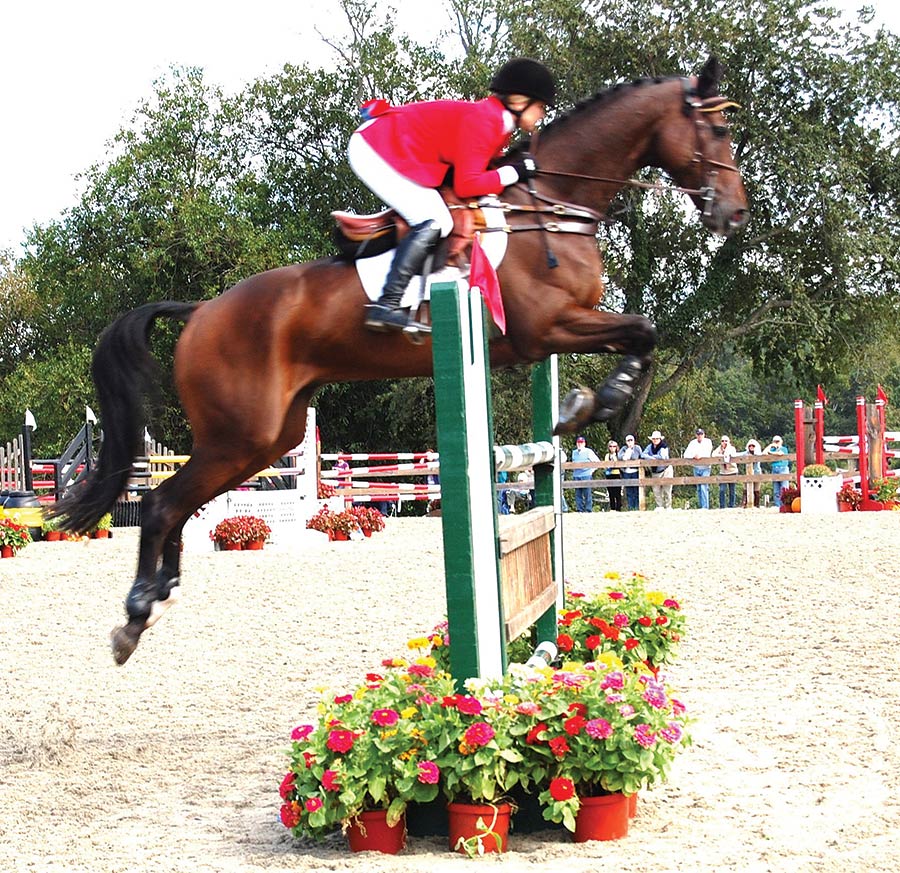 Marilyn Little competes in the show jumping phase of the four star competition at a past Plantation Field International.
Marilyn Little competes in the show jumping phase of the four star competition at a past Plantation Field International.
Last fall it looked like the end of the line for one of the region’s biggest and most respected horse sport venues. Property owner Cuyler Walker cancelled the lease with event organizers after a controversy erupted over the venue’s name.
But while the events and shows will go on at Plantation Field, and the organizers have maintained the name, the governing body of horse sports will refer to its owned events there as “Unionville,” the community where it is located.
In a statement to East Coast Equestrian the United States Equestrian Federation (USEF) said it will use the name USEF Youth Team Challenge Unionville for the Youth Team Challenge leg taking place on the property, consistent with the “USEF Naming and Branding Guidelines.” The other three events in the series are identified as Aiken, Adamstown and Tyron rather than by the venue names.
“USEF has been strengthening the branding and consistency of naming for USEF named competitions over the past several years and determined adopting geographic name designations for event locations consistent with the FEI (Federation Equestre International) would minimize confusion with the calendars,” the statement said.
The statement urges USEF competition organizers and members to review the purpose and strategies in U.S. Equestrian Diversity, Equity and Inclusion Plan and said USEF is committed to “creating a welcoming and inclusive environment for all while ensuring the best facilities and competition opportunities available for competitors.”
USEF added while decisions regarding venue and competition names are “ultimately the discretion and responsibility of individual organizers” that they should “consider the impact of the use of offensive words and phrases.”
The dust up began in June 2020, when the online news site Eventing Nation approached the U.S. Eventing Association and the USEF about changing the name because of the objectionable historical roots of the word “plantation,” and followed up with a September editorial citing the “painful” and racist connotations of the name.
Supporters of Plantation Field flooded social media with pleas to preserve the venue and keep the name, which stems from trees planted on the 300-acre property.
Walker, who did not respond to a phone message for comment, and supporters of Plantation Field were outraged at the suggestion of racism. Many pointed to the location of the Chester County property - in the heart of the Pennsylvania’s early Quaker settlements - where residents were active as abolitionists and participants in the underground railroad.
“It was a very unfortunate event,” said Denis Glaccum, president of Plantation Field Equestrian Events Inc., in an interview last month about the controversy. “It created division; we’ve supported diversity.”
The name “Plantation Field” he said, dates to the 1940s when a Boy Scout troop planted trees on the property. In colonial times ‘plantation’ referred to a property greater than 100 acres.
Glaccum issued a press release after the Eventing Nation editorial ran that said the lease cancellation resulted from what he called “an attack on Plantation Field.”
The press release went on to say “the loss of Plantation Field will be a huge loss for the equestrian community.”
But this spring the website listed a full slate of events, including dressage and jumper shows and the premier Plantation Field International Horse Trials in September, which draws Olympic-level talent and hundreds of spectators.
The USEA, which did not respond to a request for comment for this article, in September issued a statement saying it did not have the ability to require an event to change its name and was hopeful “an acceptable solution” could be reached.
So far, the events have been very successful, Glaccum said, adding his organization has hired Derek di Grazia, who designed the cross-country course for this summer’s Tokyo Olympics, to design the course for the International Horse Trials.
For her part, Eventing Nation editor Leslie Wylie said she and her publication continue to support the venue and its stakeholders and hopes that the issue raises awareness among the equestrian community about the need to demonstrate that all are welcome in the sport.
“We are disappointed that the thoughts and perspectives held by many valuable but underrepresented members of our eventing community were overridden in discussions about its name last year, but we are glad that the event has continued in 2021 as it is beloved by so many,” she said.
“We wish it continued success and hope that going forward, the equestrian community at large will be more mindful of diversity and inclusion.”




